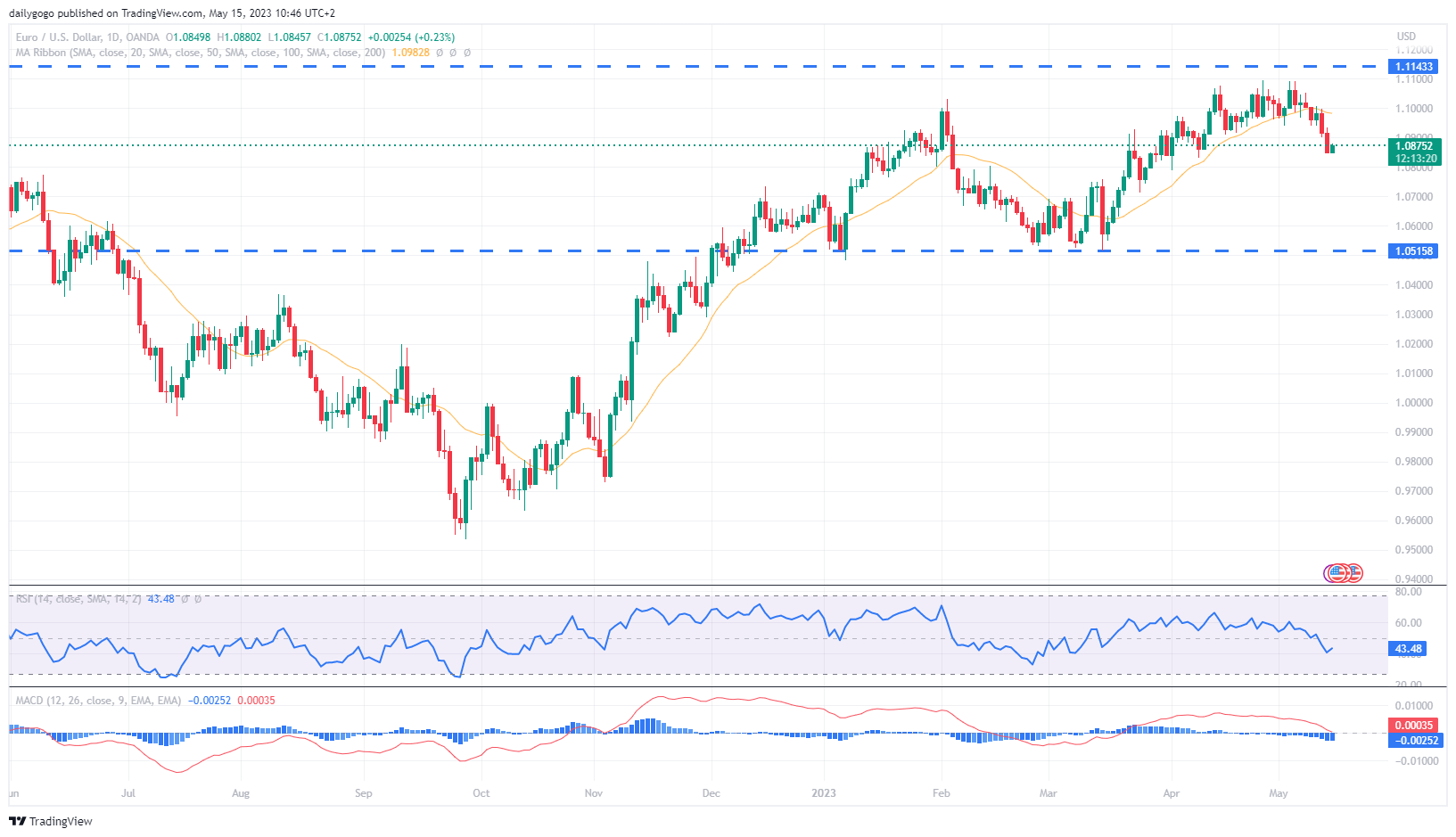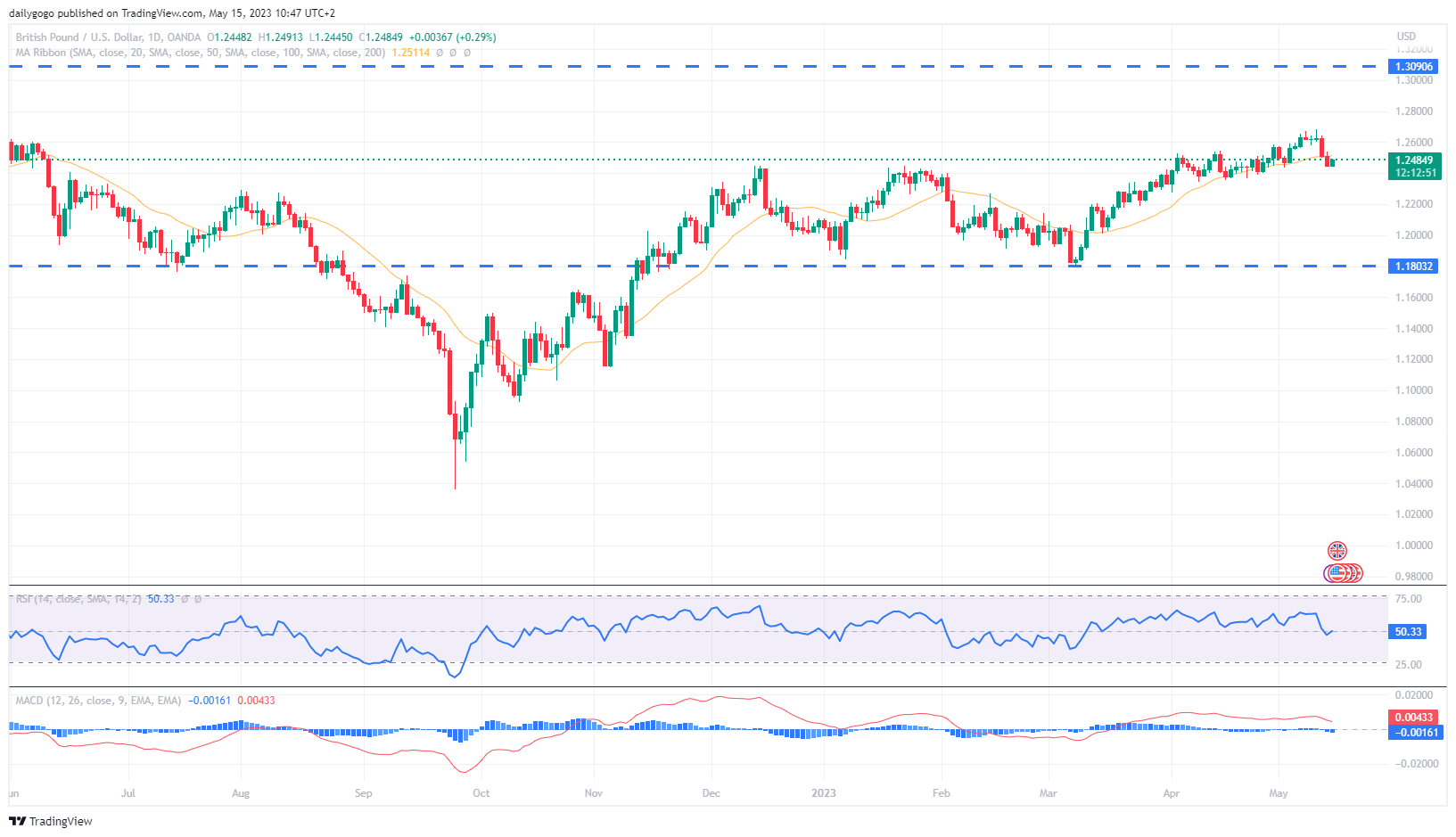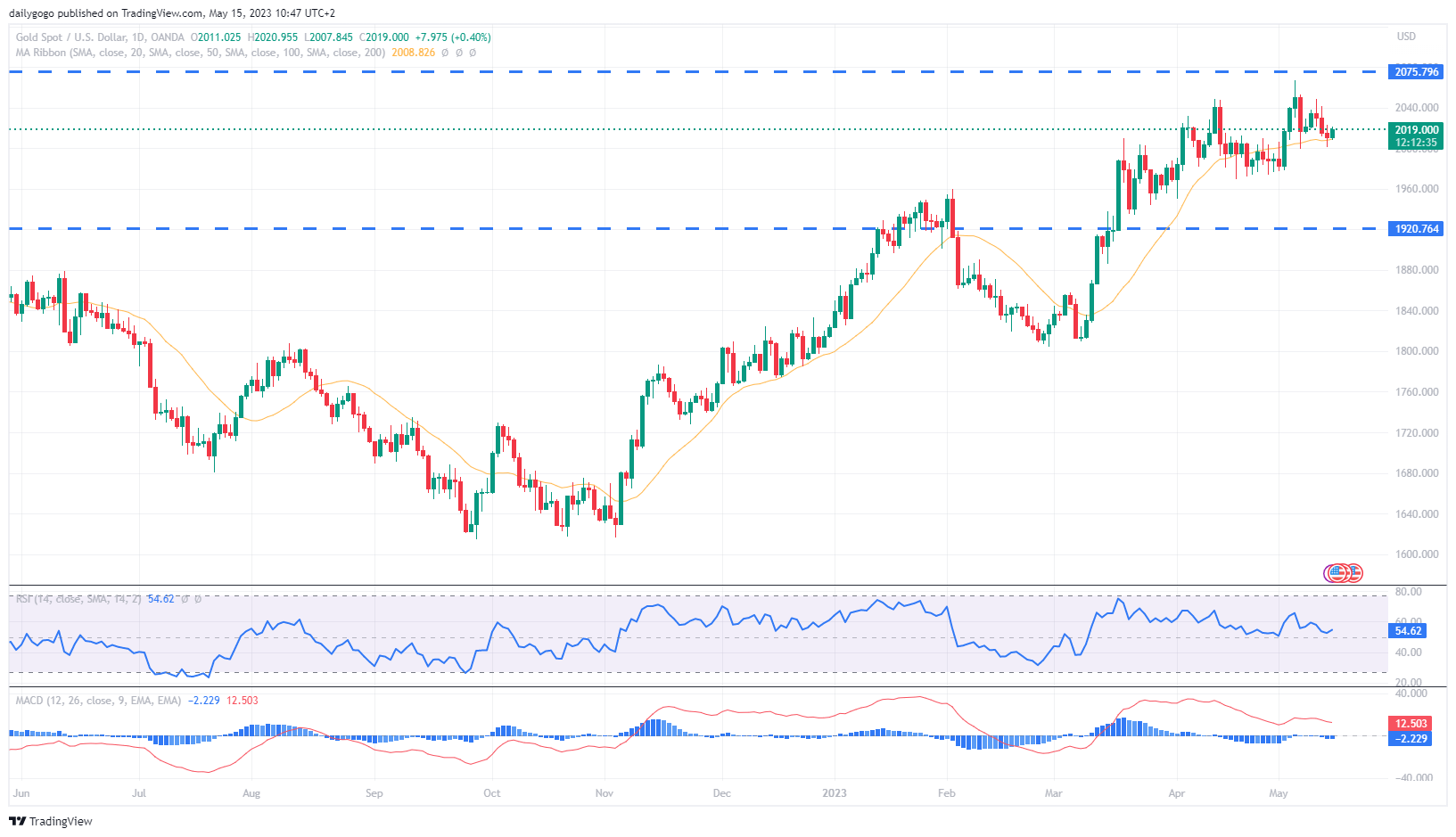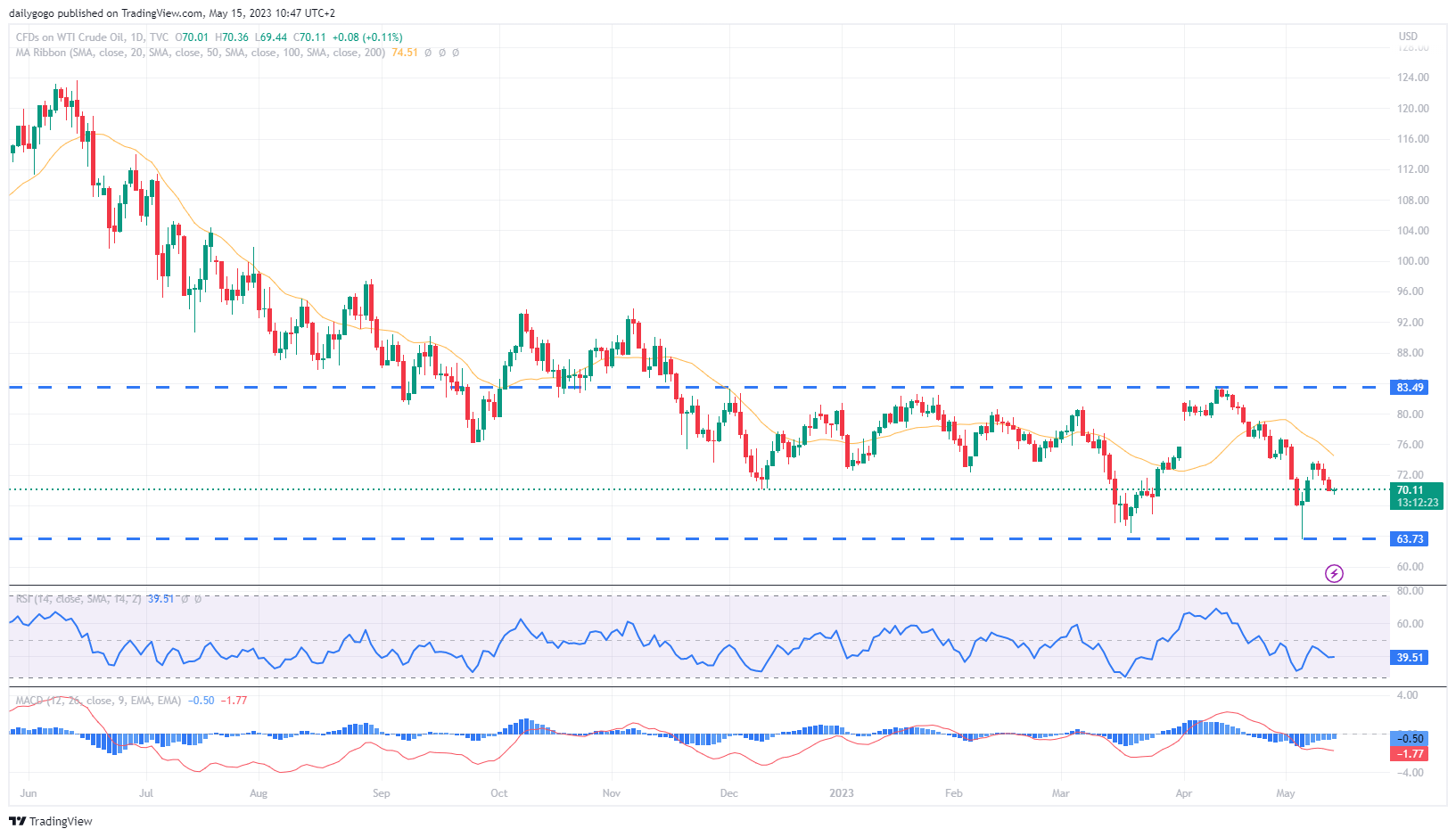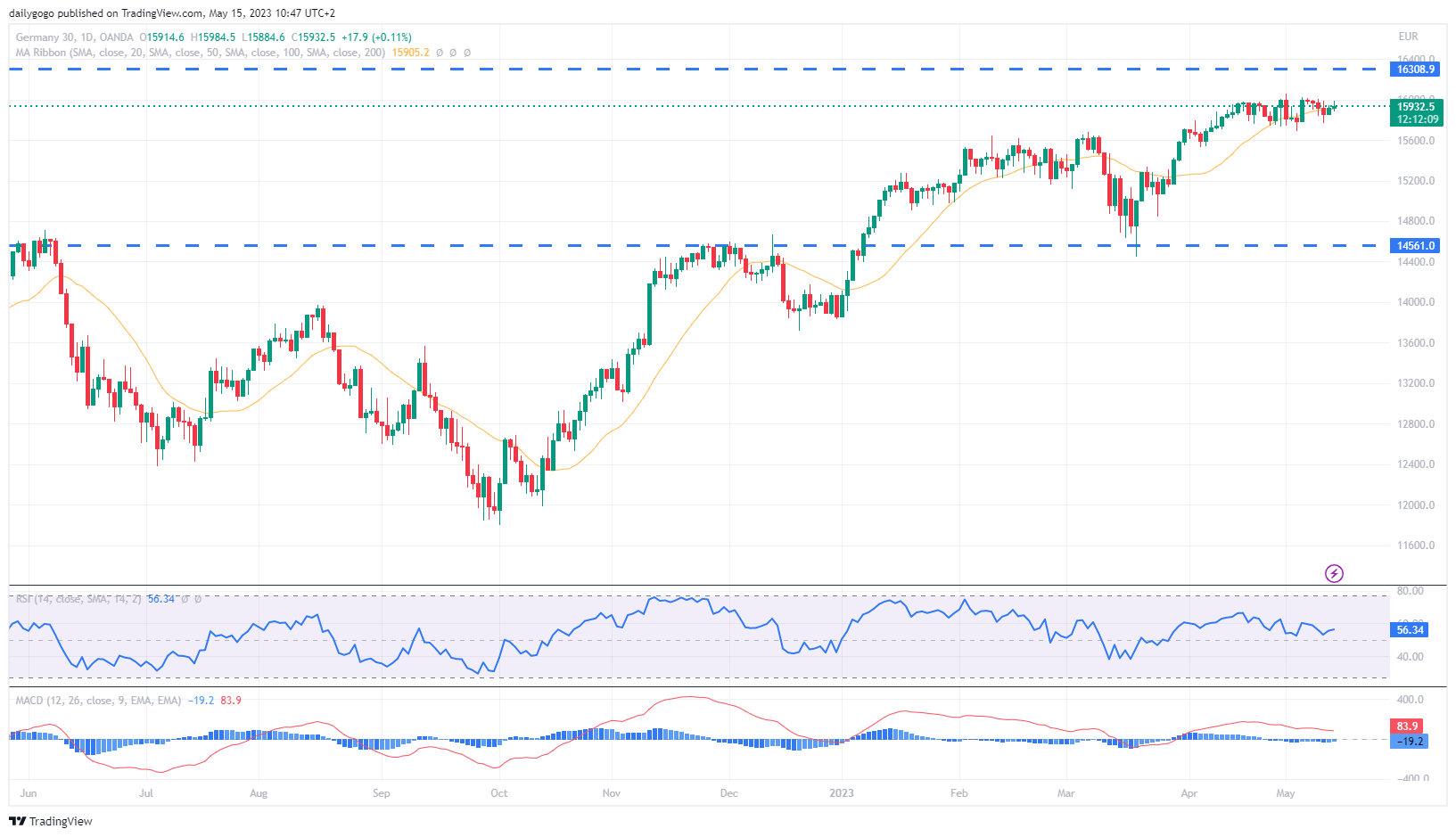EURUSD
- EUR/USD rose 0.25% to 1.0876, bouncing back after dipping to a fresh five-week low of 1.0845 earlier in the session.
- The European Central Bank said in an Economic Bulletin article on Monday that rapid rate hikes lowered inflation modestly last year, but the biggest impact is expected only in 2024, reaffirming a long-held view that policy works with big lags.
- The U.S. dollar edged lower in early European trade Monday, although it remained near a five-week high on inflation concerns.
- President Joe Biden and House Speaker Kevin McCarthy are likely to meet early this week to discuss budget negotiations after Friday's meeting was cancelled.
- No major economic data is expected on Monday.
Closing statement: The euro rebounded slightly against the dollar on Monday, while investors continue to monitor inflation concerns and budget negotiations in the United States.
GBPUSD
- GBP/USD rose 0.28% to 1.2482, recovering from losses in the previous two days.
- The Bank of England benefits from the stronger pound, which contributes to inflationary pressures, and may adopt a more hawkish stance than the US Federal Reserve in the coming months.
- The DXY index, which tracks the US dollar against six other currencies, traded 0.1% lower at 102.420, after reaching a four-week high of 102.75 earlier in the session.
- Fed Governor Michelle Bowman suggested that if inflation remains high and the labour market stays tight, the central bank may need to raise interest rates further.
- The market remains focused on the upcoming US budget negotiations and any developments on the inflation front.
| SMA (20) | Slightly Rising |
|
||
| RSI (14) | Slightly Rising |
|
||
| MACD (12, 26, 9) | Slightly Falling |
Closing statement:The GBP/USD pair recovered some of its losses, supported by the Bank of England's hawkish stance and weaker US dollar. Investors are keeping an eye on the US budget talks and inflation data for further direction.
GOLD
- Gold prices rebounded on Monday after experiencing a downtrend last week, as concerns over slowing economic growth and higher interest rates increased demand for safe-haven assets.
- The recent retreat in gold prices was driven by profit-taking by traders and reduced expectations of interest rate cuts by the Federal Reserve.
- The Federal Reserve recently raised interest rates for the 10th consecutive time but hinted at the possibility of pausing its aggressive tightening cycle as it evaluates economic data and the impact of previous rate hikes.
- Market attention this week will be focused on speeches by several Federal Reserve officials, with particular interest in Chair Jerome Powell's remarks on Friday.
- Investors will closely monitor these cues from the Federal Reserve to gain insights into the future trajectory of interest rates and their potential impact on gold prices.
| SMA (20) | Slightly Rising |
|
||
| RSI (14) | Slightly Rising |
|
||
| MACD (12, 26, 9) | Slightly Falling |
Closing statement: Gold prices recovered from last week's decline as concerns over economic growth and interest rates drove demand for safe-haven assets. Market participants are eagerly awaiting speeches from Federal Reserve officials, including Chair Jerome Powell, for further indications of the central bank's monetary policy direction.
CRUDE OIL
- Crude oil prices have continued their downward trend, extending losses for a fourth consecutive week amid concerns over slowing economic growth.
- The world's two biggest oil consumers, the U.S. and China, have seen recent data indicating worsening economic conditions, leading to worries about a slower-than-expected recovery in oil demand.
- Traders are now focused on economic indicators from both countries, such as industrial production and retail sales, to assess the state of their respective economies.
- China, the world's largest oil importer, is seeing a slowdown in its post-COVID economic rebound, with its manufacturing sector struggling with slowing demand.
- The market will also be looking at a slew of Federal Reserve speakers this week for further cues on the economic outlook and potential policy moves.
| SMA (20) | Falling | |||
| RSI (14) | Neutral | |||
| MACD (12, 26, 9) | Slightly Falling |
Closing statement: The crude oil market is facing headwinds from concerns over global economic growth and the pace of demand recovery, with traders closely monitoring economic indicators and central bank speeches for any signs of potential shifts in policy or market sentiment.
DAX
- The DAX index in Germany traded 0.22% higher, while the FTSE 100 in the U.K. climbed 0.27% and the CAC 40 in France rose 0.51%.
- The Eurozone is set to release revised data on first-quarter GDP on Tuesday, with economists expecting the bloc's economy to have expanded by just 0.1% in the three months to March.
- Inflation across the 20 nations sharing the euro remains at 7%, and underlying price growth is becoming increasingly stubborn, indicating a protracted slowdown despite falling energy and commodity prices.
- DAX's support level is at 15810/15770, and a break below 15750 with a weekly close below that point could lead to losses next week.
- Resistance is currently holding strong at 15970/16000 from a technical point of view.
| SMA (20) | Slightly Rising |
|
| RSI (14) | Slightly Rising |
|
| MACD (12, 26, 9) | Neutral |
Closing statement:Overall, the European markets are showing slight gains despite concerns over the Eurozone's economic growth and stubborn inflation, with investors keeping an eye on GDP data and technical levels for individual indices.
